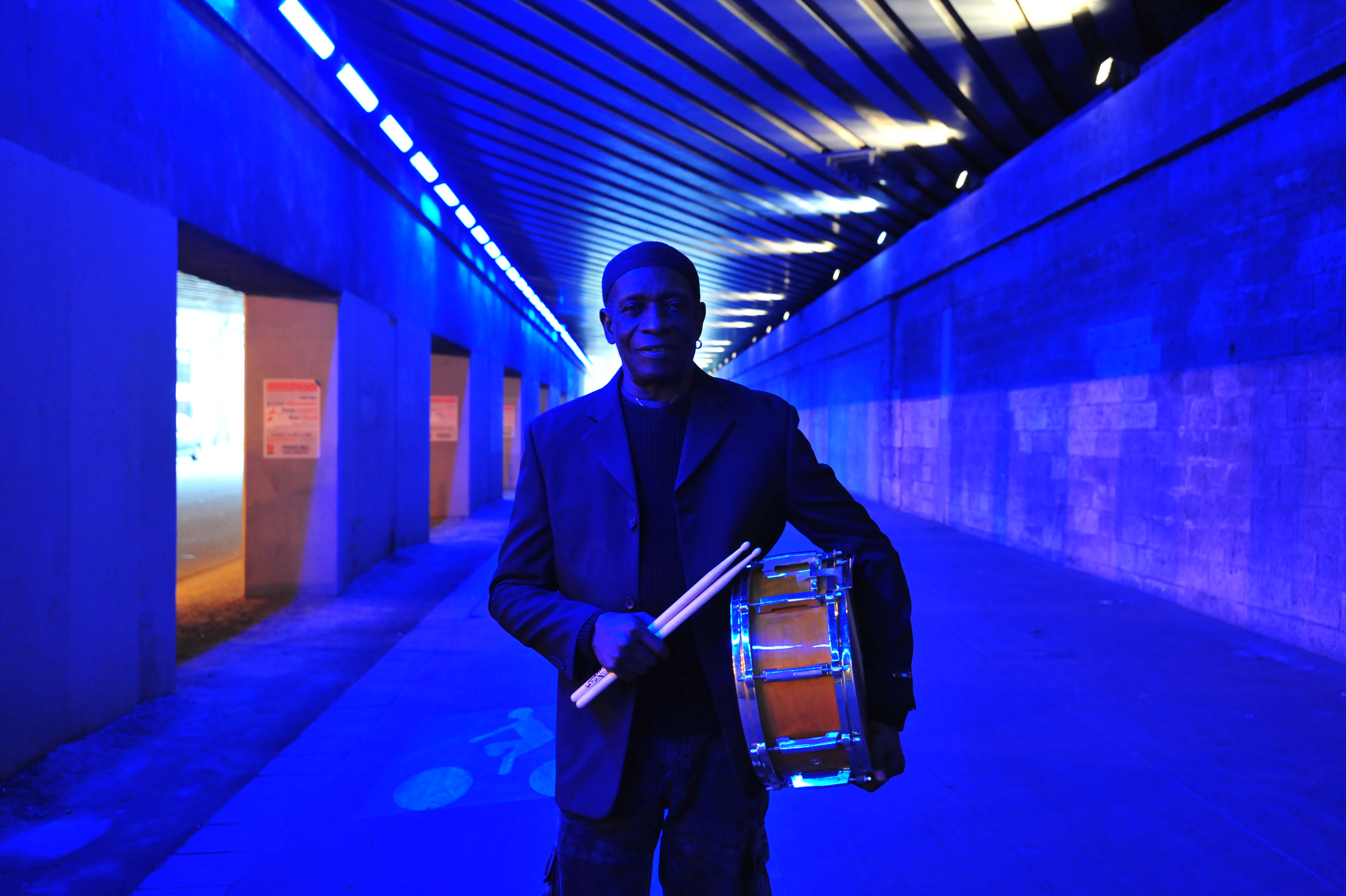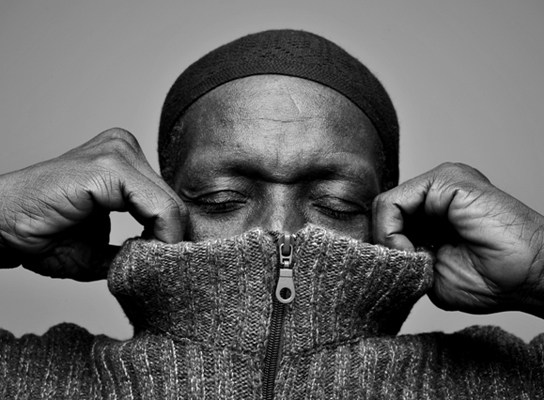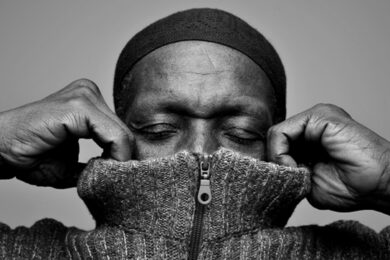Truly revolutionary music has to fulfil several criteria. The strong social, spiritual or political message must be delivered by those at the heart of the action, not external observers; the form of the music must be as revolutionary as the message itself; in the most basic sense it must be avant garde (ahead of the curve) yet it must also be populist enough to catch like wildfire; and it must have a complete aesthetic identity that helps generate a fervent fan base.
These are the bands and artists that come once a generation and seem to be in the right time and at the right place to voice the anger, frustration or aspirations of entire groups of people who are desperate for some kind of fundamental game change in the way they live. Public Enemy, The Sex Pistols, James Brown, Black Flag, Napalm Death, Afrika Bambaataa, N.W.A., Lee Perry, Derrick May, Bob Dylan…
For many Nigerians in the 1970s, the revolutionary musician that all other revolutionary musicians must be judged by was Fela Anikulapo Kuti. He still remains the most visible face of Afrobeat in the world today (despite – or perhaps because of – dying relatively early; his body weakened by police beatings and the ravages of untreated AIDS). But as the ambient pioneer and world famous “non-musician” Brian Eno pointed out, during that decade there were only three revolutionary rhythms worth talking about and they had hardly brought their inventors wealth and fame. They were the funk break beat, perfected by James Brown’s drummer Clyde Stubblefield; the trance inducing motorik four four devised by Neu!’s Klaus Dinger, and the combination Yoruba, Jazz and Highlife rhythm that powered Afrobeat, invented by Tony Allen.
Born in 1940, he picked up the sticks while 18 and working at a radio station, playing in several Highlife bands before teaching himself how to drum like jazz legends Art Blakey and Max Roach. He met Kuti in 1964 and by the end of the decade the pair had invented Afrobeat, which hinged rhythmically around the sticksman being able to play completely different patterns simultaneously with all four of his limbs. Kuti, not unreasonably, claimed it was like having a quartet of drummers in his band.
Allen, a laconic 72-year-old from Lagos who lives in Paris and is still quite rightly revered as a musical powerhouse today, also pushed Afrobeat out into wilder more electronic, dub and hip hop influenced directions in the 1980s. He has enjoyed some chart success again in recent years via various collaborations with Damon Albarn, most notably with The Good The Bad And The Queen, which also features Paul Simonon of The Clash. He is currently working on another project with Albarn called Rocket Juice And The Moon, which also features Flea of The Red Hot Chili Peppers.
What can you tell me about Rocket Juice and the Moon?
Tony Allen: Rocket Juice and the Moon, right now, is the latest thing I’m involved in. We started after the seven day long Africa Express Festival in Lagos in October 2008. That’s where I met Flea from the Red Hot Chili Peppers for the first time. He had been looking forward to playing with me for some time apparently and on this occasion came around. We got together in Lagos and played. I really liked his approach, you know as a white guy playing bass in the Afrobeat movement. It all clicked, so when we arrived back in London we went into the studio with Damon [Albarn] and tried to work out how his bass would fit with my drumming, and that was it. We started to build it up from there.
You work with Damon quite a lot. Did you meet him after he name checked you in Blur?
TA: Yeah, someone played me that song [‘Music Is My Radar’ a single released in 2000, which ends with the repeated phrase: “Tony Allen got me dancing.”] That was ten years ago you know! It goes by just like that! Anyway, I was looking for someone to sing on the last song on my album Home Cooking in 2002 as a guest, and a musician introduced me to him. And it was as simple as that. He just came down and did it. The first day he was in the studio, we did two or three songs together and after that I just said to him, ‘I’m looking forward to the day when we can get together some time and do a project from scratch. Do it from the beginning.’ He said, ‘Why not.’ But he had his career with Blur and Gorillaz at the time and he had to wait for that to finish. But then he called me and said, ‘Tony. I’m free now.’ And that’s how we started working together [as The Good, The Bad And The Queen] and we’ve been to Lagos together maybe three times since then.
He’s really into music from Nigeria and Mali right?
TA: Oh yeah, many things. He goes to Mali a lot and with me it’s the Nigerian connection.
You’ve hinted before a few times that you’ve been recording a second The Good, The Bad And The Queen album – when are we likely to see that?
TA: Ah well, I don’t know you know? For now I just have to deal with Rocket Juice And The Moon, you know? There’s no point in trying to write any of that other stuff while we’re still playing Rocket Juice. We need to get that out of the way, and then see what happens.
In the 1970s, Brian Eno famously said there were three important rhythms, that of the sort of funk James Brown played; the sort of motorik that Neu! played; and the sort of Afrobeat that Fela Kuti played. Given that you were the originator of the Afrobeat rhythm, did you ever meet Clyde Stubblefield of The J.B.s or Klaus Dinger of Neu!?
TA: No, I never met them. Out of The J.B.s the guy I remember is Bootsy Collins. He was the only one I met properly because when he goes to Lagos he always comes to our club there; he is the one who turns up properly. He is one of the guys – he is one of us.
Obviously American jazz was an influence on your drumming but what about funk?
TA: Well, funk and Afrobeat have the same kind of groove you know but the point is that funk is one particular groove. Afrobeat has many different grooves. Afrobeat is not actually one particular beat. What I am doing when I am playing, is I am creating patterns. I don’t think of the beat as being just like funk… I think that it should be a mixture of everything… Africa… America… Wherever!

How rare is it for a drummer to be able to play four different patterns simultaneously with four limbs at the same time?
TA: Rare. Afrobeat is my creation right? But other drummers can play Afrobeat… It’s just that they need to pass through the school of Afrobeat first. It’s just not like any other drumming style – it’s totally different. It might be four four in time signature but sometimes, if you don’t know anything about it, you have to be looking for where the one is on the pattern, and that is very dangerous if you don’t know where the one, is because you won’t be able to arrive at it. So I think the best thing is for you to pass through the school first and see how it all works. People can go on their way as soon as they know the rudiments of their instruments but not before. That’s the way I look at it.
Talking about drummers who come from a totally different background, what did you make of Ginger Baker as a drummer?
TA: Well Ginger Baker is my friend. We first played together forty years ago in 1971, first in London and then back in Nigeria in a Studio that we built in Lagos. He and I were engaged in drumming all the time. And I went to the Zildjian Awards for drummers where he was honoured in 2008. He is my friend and he is a good drummer.
The actual form of Afrobeat lent itself to very long gigs and very long songs… it must have kept you fit!
TA: Well, that was more Fela’s thing than mine. I tried to get back to playing shorter songs after I stopped playing with him. It was just him, but he was the only one I stayed with for a long time. If you look at what I do now I try to do more songs. I don’t just want to do two songs per album. I had played with five different bands before I met Fela and I had played a lot of different types of music.
So had you already started combining Yoruba, Hi Life and Jazz when you met Fela in 1964?
TA: No, when I met him I was playing strictly Hi Life and then later we started playing all the European cover versions. And then when I started playing with him it was strictly jazz. We played jazz together for our first year. And then we decided to get into this Hi Life Jazz thing.
And that was the Koolos Lobitos band?
TA: Yes. We were the Koolos Lobitos and then after that… that’s when the creation of Afrobeat happened.
Did you recognize in each other people who were interested in creating a futuristic sound – a new sound that had never been heard before?
TA: Well, yeah, that was when it happened. And he was writing. He was writing for everybody. But he wasn’t writing for me you know, because I needed to figure out what would sound best. Without him, I might not be known for this style but without me he couldn’t have written it the way it was. You understand?
Yeah, of course. Out of the 30 albums you recorded with Africa 70, which are the ones you are most happy with, the ones that you are pleased to hear on the radio?
TA: Ah well, I don’t know, a lot of them! Obviously my feelings are that they are all good! That is how I feel about it. But you know, Rotoforo Fight, Confusion… around his second album you know.
What reason did Fela give you for not cutting you in on the royalties with your fair share of the money?
TA: Oh you know, he just wanted to be fucking greedy. That’s all it was. At the end of the day promises are promises but also at the end of the day I don’t give a shit about it, because I just believe in facing the world, which is a challenge, and money isn’t everything you know. As a matter of fact, today it doesn’t bother me if I don’t get those royalties. I am on my own and I think I can fend for myself anyway.
When you stopped working with Fela after 1980, your own solo material became much more progressive, a sound that some people call Afrofunk…
TA: Did I play Afrofunk? I didn’t call any of my music that.
How would you describe your post Africa 70 music?
TA: I still maintained my Afrobeat. It was just a question of taking it into a different dimension.
But you really pushed it on with the electronics and the dub influences…
TA: Yeah, it was an experiment that was happening with my roots and electronics. It was me giving my beats to different DJs and they used it. And that was the beginning of that – trying to fuse electronics with my beats. Just to see how it would sound.
Rocket Juice And The Moon is out now on Honest Jon’s



